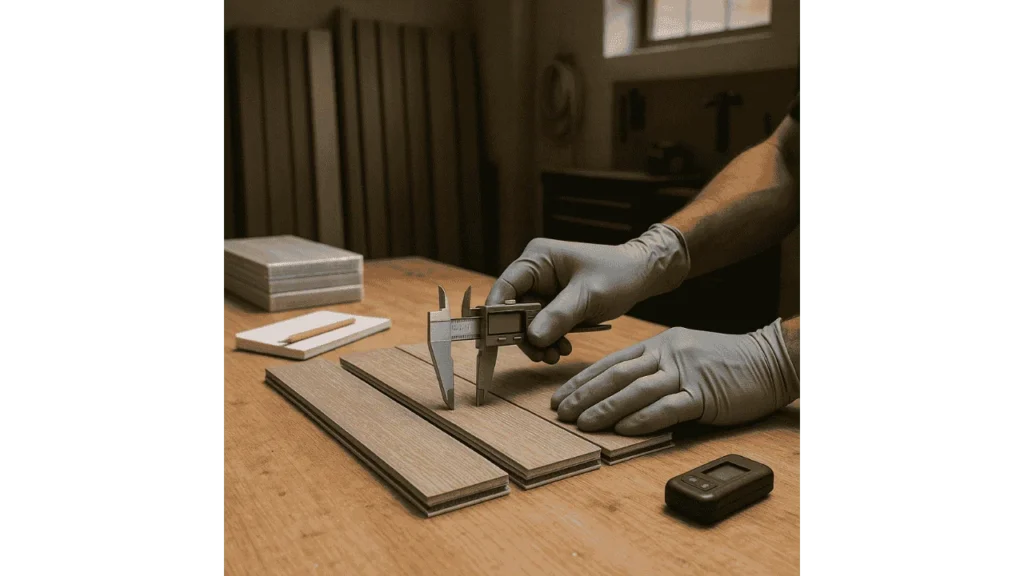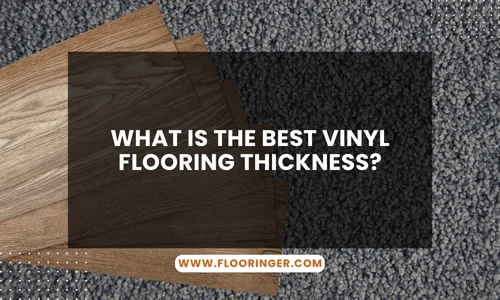Choosing the right vinyl plank flooring thickness plays a crucial role in the overall durability, comfort, and longevity of your floors. With various options available, understanding the different aspects of thickness can help you make an informed decision that suits your needs. As someone who’s guided countless homeowners through flooring choices, I can tell you: getting the right thickness can make or break your satisfaction with the final result.

Understanding Vinyl Flooring Thickness Basics
Vinyl plank flooring comes in a range of thicknesses, typically between 2mm and 8mm. Thinner planks are often less expensive and more flexible, but they don’t offer the same level of stability or sound insulation as thicker options. Thicker planks tend to resist wear better and feel more comfortable underfoot, making them ideal for high-traffic areas or multi-level homes.
Matching Thickness to Room Usage
Residential vs. Commercial Needs
For residential spaces like bedrooms or guest rooms with lighter foot traffic, a 4mm to 6mm thickness generally works well. In commercial environments or heavy-use areas like kitchens and hallways, you’ll want planks that are at least 6mm or more for optimal performance.
“The thicker the plank, the better it handles daily wear and tear, especially in high-traffic zones,” explains interior contractor Marcus Heller.
Consider Lifestyle Demands
Homes with pets or children may benefit from thicker planks as they’re more resistant to scratches, dents, and sound transfer. For multi-level homes or apartment settings, the added density also improves soundproofing, which helps maintain a quieter environment.
The Role of the Wear Layer
The wear layer is an added surface coating that protects the vinyl plank from damage. While the core thickness supports the plank’s strength, the wear layer determines how well it holds up to scratches and stains. These layers typically range from 8 to 20 mil, with thicker layers offering better protection. High-traffic homes should aim for at least a 12 mil wear layer, while commercial setups may need 20 mil or more.
Subfloor Conditions Matter
An uneven or poorly prepared subfloor can impact which thickness will work best. Thicker planks often mask minor imperfections better than thin ones, helping you avoid visible surface inconsistencies. However, if your subfloor is smooth and level, thinner planks may suffice and reduce installation costs.
Learn More: How to Acclimate Vinyl Plank Flooring?
Added Comfort and Acoustics
Thicker vinyl planks naturally provide better underfoot comfort and sound dampening. If comfort and noise reduction are priorities, such as in living rooms or upstairs bedrooms, opting for thicker planks (6mm and above) is a smart move. Some even come with attached underlayment to enhance these benefits further.
“We’ve seen that thicker vinyl floors reduce noise transfer by up to 30%, which is a game-changer for families,” notes acoustics specialist Lana Zhou.
Protective Coatings and Maintenance
Many premium vinyl planks come with enhanced protective coatings that guard against moisture, spills, and stains. These coatings extend the life of the flooring and reduce day-to-day maintenance. Make sure the coating is compatible with the type of cleaning products you intend to use, especially in kitchens and bathrooms.
Balancing Cost and Longevity
While thicker flooring tends to cost more upfront, it often pays off in terms of fewer replacements, lower repair needs, and greater comfort. If your budget allows, investing in high-quality, thicker planks with a strong wear layer is a smart long-term choice.
Professional Installation for Best Results
Proper installation ensures your vinyl flooring performs as intended. Even the best thick vinyl planks won’t compensate for poor installation. Hiring a professional installer guarantees proper leveling, alignment, and sealing, all of which contribute to long-term durability.
Final Takeaways
Choosing the right vinyl flooring thickness comes down to where it will be used, how much traffic the area receives, and what comfort and durability levels you expect. Thicker planks (6mm or more) with a durable wear layer and proper installation offer the best combination of resilience, aesthetic appeal, and comfort. Always assess your lifestyle needs, budget, and subfloor condition before making the final decision, and you’ll enjoy floors that not only look great but last for years.
